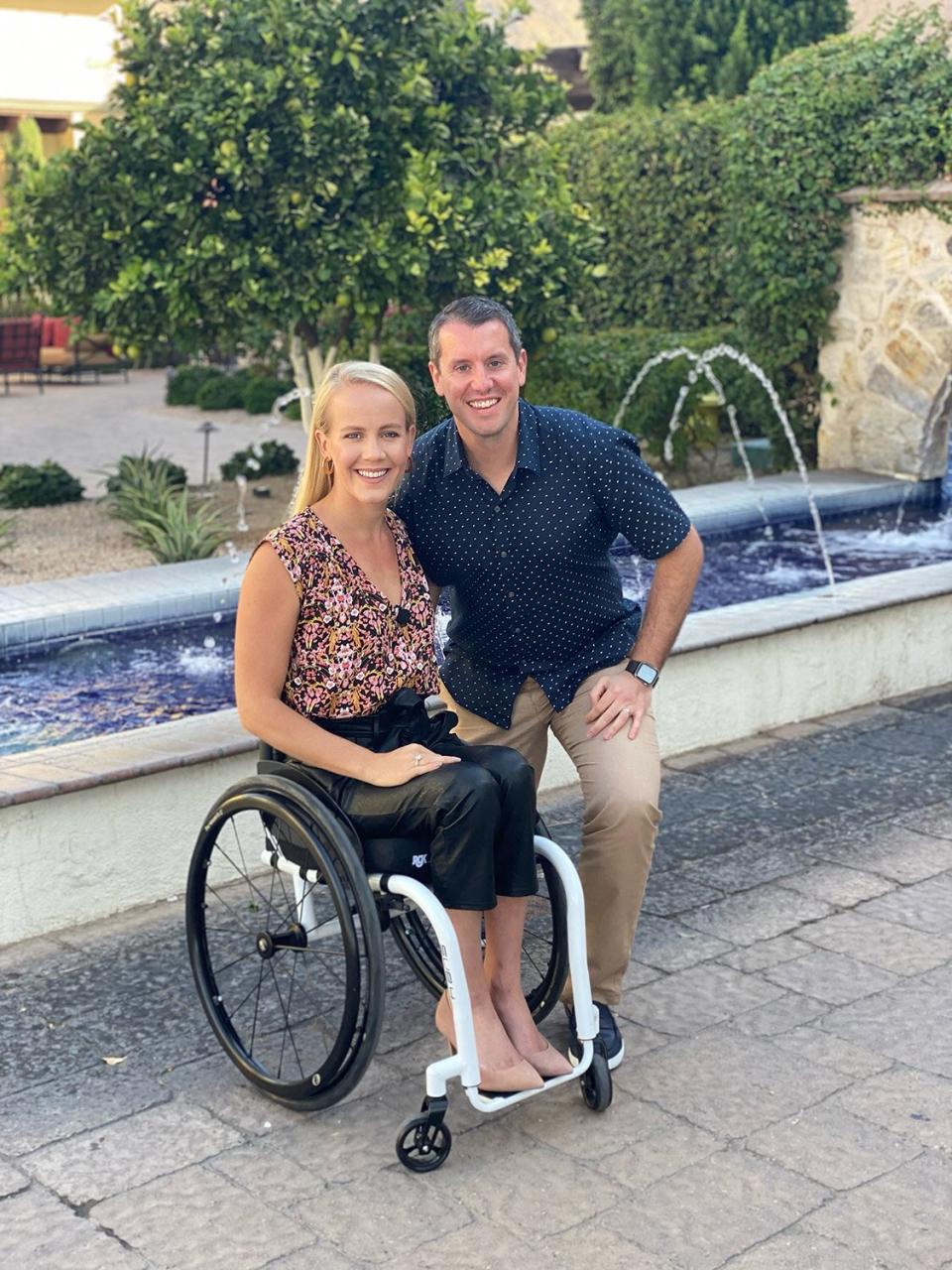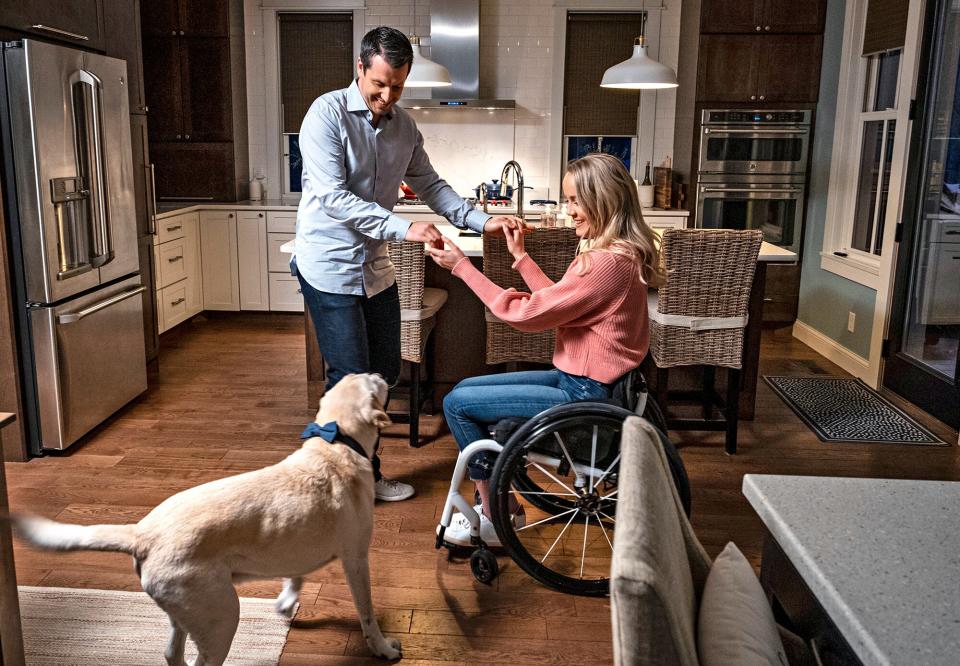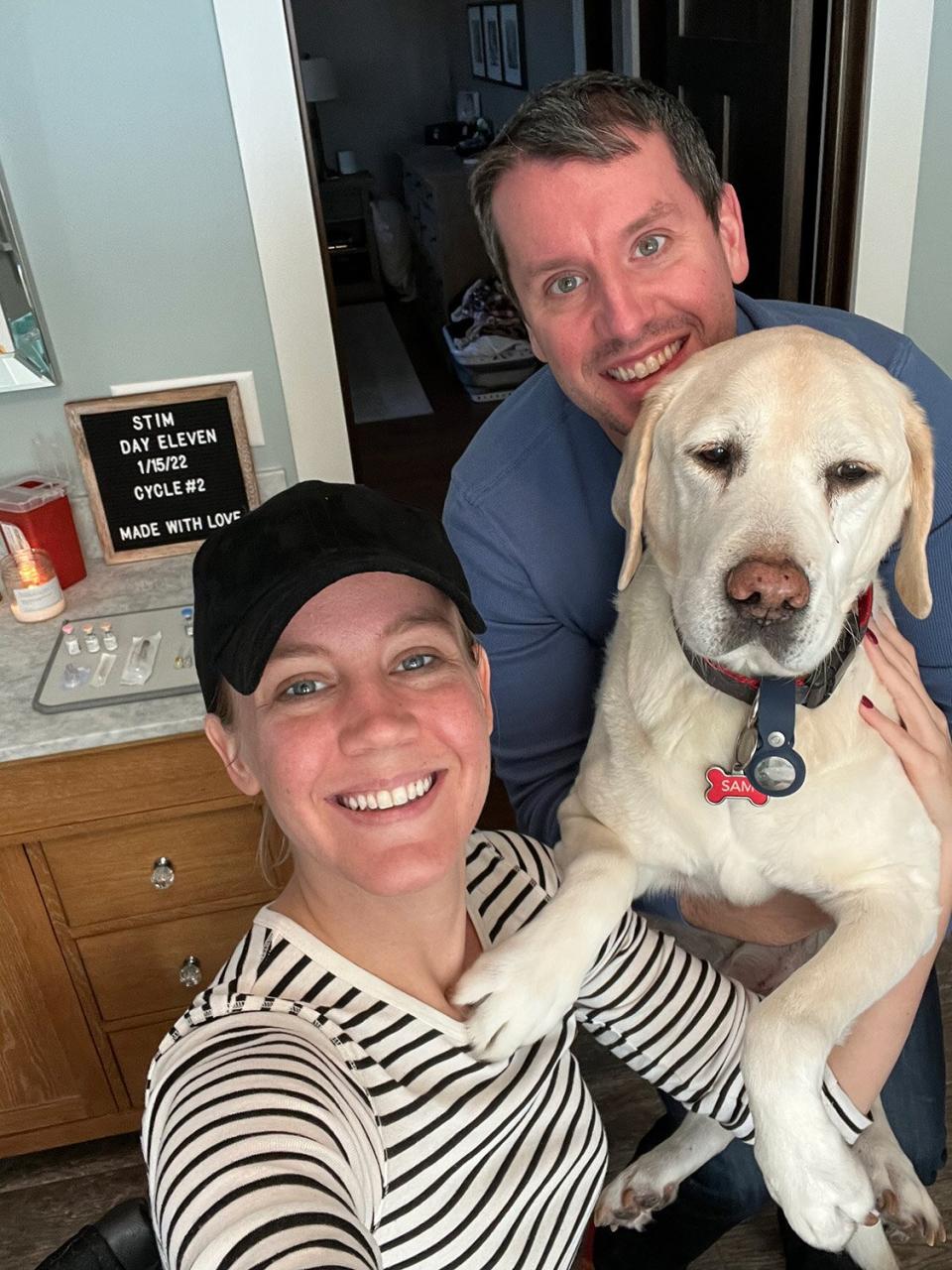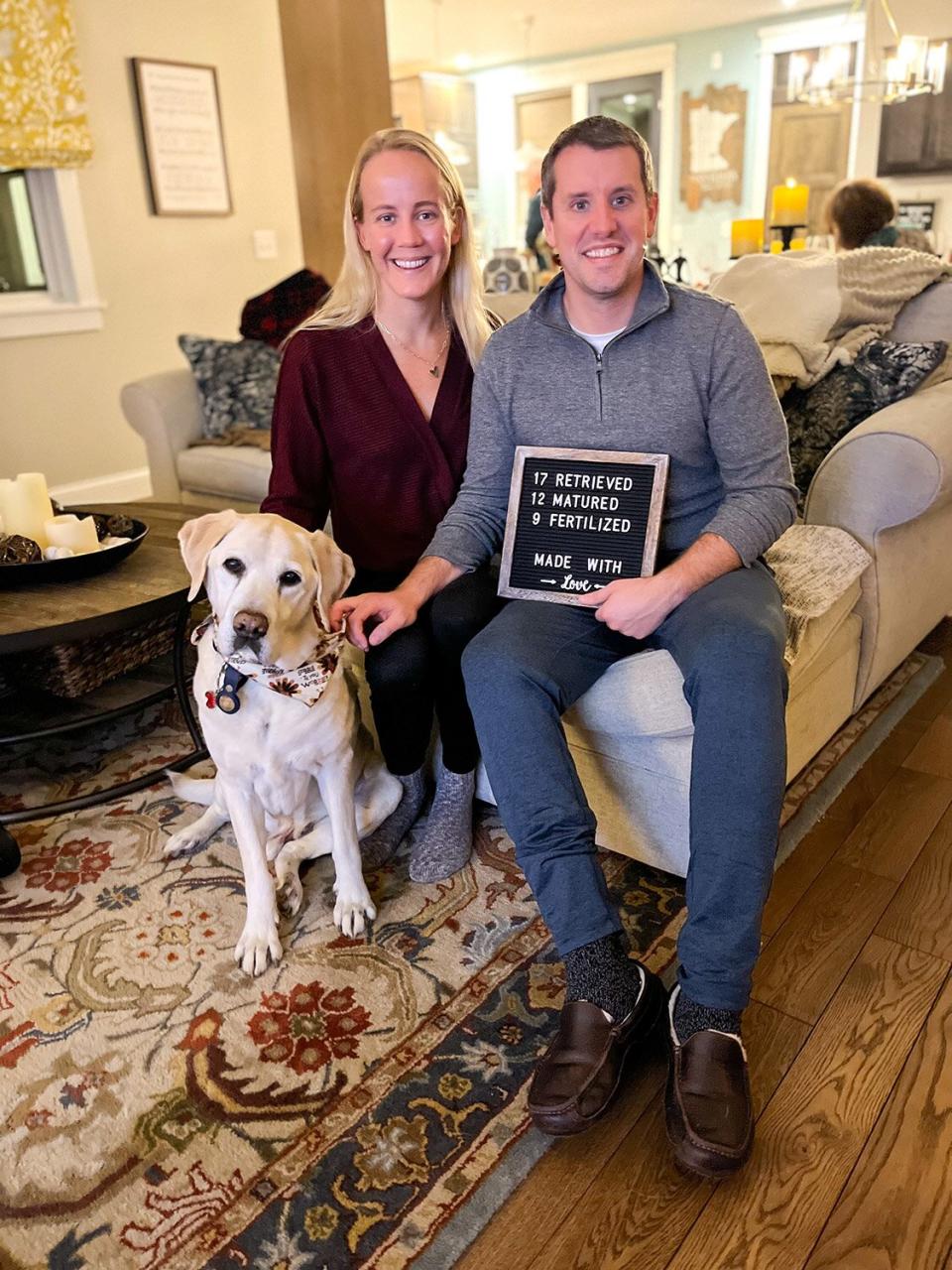Paralympic Swimmer Mallory Weggemann and Husband Jay Snyder Open Up About Their Fertility Journey

courtesy TFA Group
Paralympic gold medalist Mallory Weggemann and her husband Jeremy Snyder have invited PEOPLE to follow their IVF journey as they try to start a family.
When the announcement was made in March 2020 that the Tokyo Paralympic Games would be delayed, Jeremy "Jay" Snyder came home to find his wife, Paralympian swimmer and gold medalist Mallory Weggemann, curled up in her closet, crying.
"I absolutely love my career, but that day was really hard," Weggemann, 32, tells PEOPLE exclusively. Her deep disappointment wasn't just about not being able to compete. As a female athlete, she carefully plans her life events around her career, and the postponed games meant waiting another year before trying to starting a family. "I just wanted to be a mom," Weggemann says. "It was the first time in my career where I had a moment, I just thought to myself, to what end?"
Lost time was a concern for the couple, who expected to face challenges when starting their family. Since meeting in 2011 — Snyder was a sports agent and Weggemann became his client — and marrying in 2016, they'd always wanted children, but "we both had our concerns," Weggemann explains.
RELATED: How Swimmer Mallory Weggemann Turned Tragedy Into Paralympic Gold
Initially Weggemann feared that her spinal cord injury and paralysis — the result of an epidural injection when she was 18 — might impact her ability to get pregnant. Fortunately, that was not the case. "It's a common misconception and one that I bought into," she says. "I was terrified to ask my medical team because I didn't want them to confirm that theory."
But Snyder's history was also complicated. Doctors had warned him of possible infertility following a childhood medical condition. "As a 13-year-old boy, it was like, 'I don't need to worry about that now,' " recalls Snyder, 39. But after he met Weggemann, it started to matter very much. "It was always in the back of my mind," he says. "But I knew that at the right time, we would figure it out."
A year after they got married, Snyder underwent testing that confirmed what he suspected: He had male factor infertility. "The reality hit us," he says. "It hit us pretty hard." Although the couple wasn't ready to start trying to get pregnant at that point, the new information reinforced the notion that challenges lay ahead.

Nina Robinson Mallory Weggemann and Jay Snyder at home in Eatan, Minnesota, with their dog Sam
After the Tokyo Paraolympic Games finally wrapped in 2021, the couple returned home to Eagan, Minnesota, and turned their full attention to their fertility journey.
"It was in the fall that we learned the depth of what we were up against," says Weggemann. "We came in knowing one thing and found out it was a little more intense than what we thought." After it became clear that in vitro fertilization would be necessary to help them achieve their dreams, they plunged into a sea of tutorials, online classes, books and intense planning.
RELATED: Mallory Weggemann Wins Gold After Setting New World Swimming Record at Tokyo Paralympics
"There's a lot of isolation when people go through IVF," says Weggemann. "There's stigma about it. There are assumptions and misconceptions. And then you add in the fact that one of us is not like the other, and that brings a whole other layer to this conversation."
She continues: "We didn't feel like it was authentic to who we are and what we talk about in terms of vulnerability if we were to go through this whole process, get pregnant, have a baby — and suddenly ...'Now she's a Mom?' That perpetuates why women and families feel alone: because they don't ever hear people talking about it. So we said, we want to talk."

courtesy TFA Group
Not only did they decide to go public about their IVF journey, documenting it on Instagram — but also the reason behind it.
Weggemann recalls the specific conversation with Snyder when he explained his willingness to be so open: "'If we tell people we are going through IVF and I don't talk about my side of this equation, everyone is going to naturally assume it's because you're paralyzed,' " she remembers him saying. "'We would be perpetuating a misconception that is completely inaccurate. We would not be doing our part.' "
The two vowed to tell their truth, refusing to let other people's unconscious biases about IVF create a false narrative.
RELATED VIDEO: How Mallory Weggemann Turned Tragedy Into Paralympic Gold: It Was About 'Believing Again'
In October 2021, Weggemann started to prepare her body for the IVF process, which includes a stimulation phase to induce the ovaries to produce eggs. Even though she wasn't training intensely, she was still traveling and giving speeches, which means Snyder was giving her shots in strange locations. "Our first stim was in a hotel room in Nashville, Tennessee, watching YouTube videos how do it," Synder recalls. "And yet, we knew there was no guarantee that we would be able to have biological children at the end of this."
In late November Snyder underwent a microTESE, an invasive procedure to extract sperm. This particular surgery has a success rate of 40 percent, so the couple was nervous. "It was pretty surreal, the whole process," says Snyder. "It was like, this is your chance to find out if you can have biological kids."
They didn't have a contingency plan if the surgery didn't work; luckily, it did. Weggemann was able to have her egg retrieval the following day.

courtesy TFA Group
Within a few more days they learned they had three fertilized embryos, two of which eventually made it through genetic testing. They were overjoyed, even though they had experienced a bit of attrition along the way. "With IVF it's almost a guarantee that you will experience some sort of loss through it," says Weggemann. They plan to transfer the embryos in the spring, after she recovers from another round of IVF to hopefully produce additional eggs for future babies.
In the meantime, Snyder is glad to play a small part in reducing the stigma around male factor infertility. "It's very rare to see men talk about fertility issues and complications," he says. "There's not a lot out of information there. You can google, you get a couple articles. I want to normalize that you're not less of a man because you have infertility."
Just ask Weggeman, who says their marriage is stronger than ever.
"The amount of love that goes into an infertility journey between a couple—just the daily choice to keep showing up for it, to keep supporting each other, to keep filling our lives with love—helps remind us that in all that stress, we're building our family," says Weggemann. "While we're still knee-deep in the journey, we have two beautiful genetically viable embryos waiting for us."
Check back for more updates as PEOPLE follows Mallory and Jay on their path to parenthood.

 Yahoo Finance
Yahoo Finance 